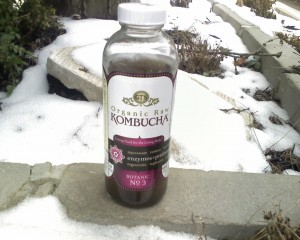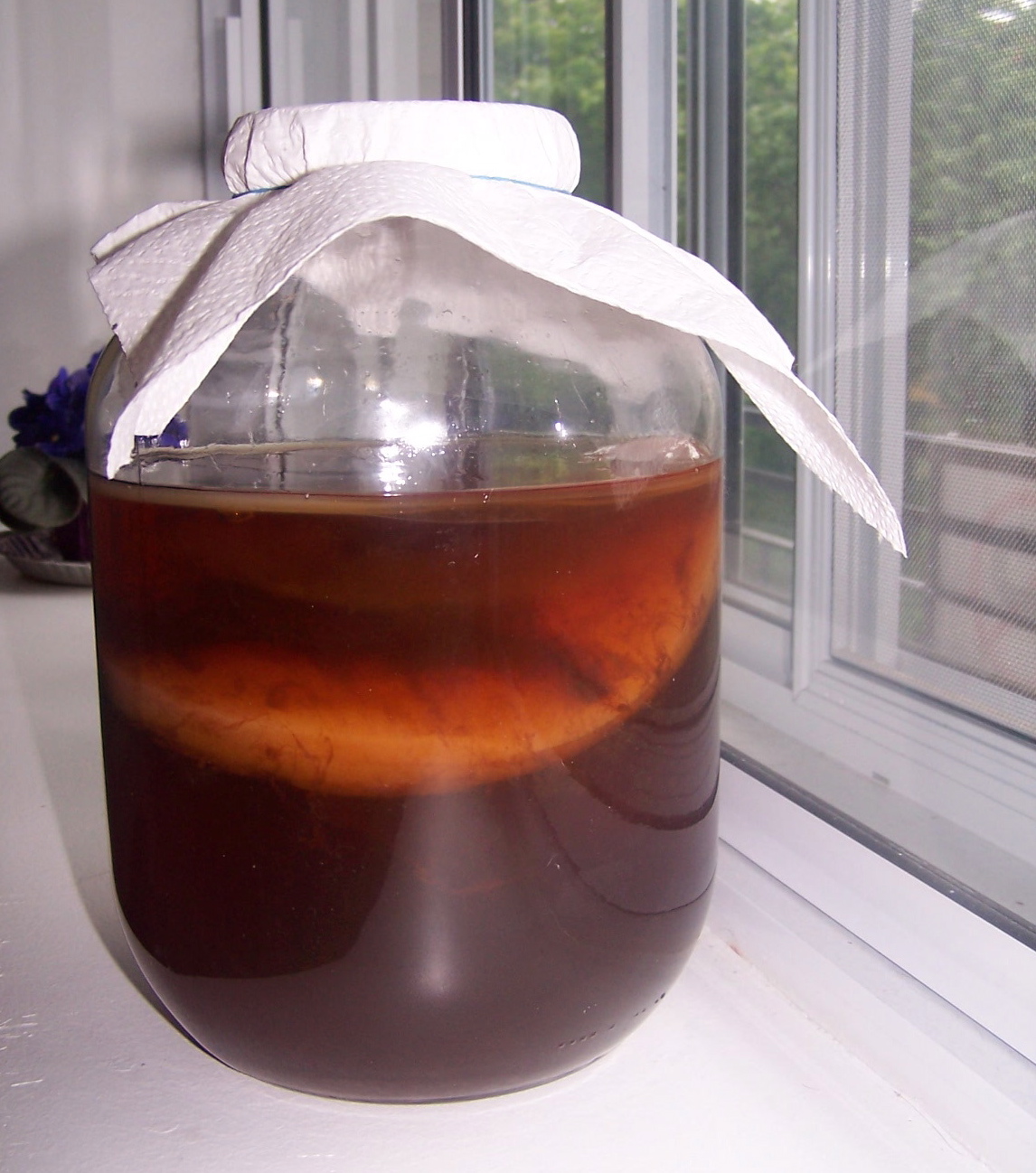Well, my choice of post title is mostly because I wanted to use alliteration. But it does introduce today’s topic: Kombucha.

Kombucha is very strange. To me at least. It is basically tea (pretty much any kind of tea: black, green, chamomile, etc.) that has a symbiotic creature composed of various fungi and bacteria living in it. This “mushroom” fills the tea with various “good” things and people drink the resultant liquid because it is healthy.
Now I know that many of our edible items come from some sort of fungus or bacteria (cheese, yoghurt, mushrooms, etc) but kombucha is just so weird. Not so weird that it hasn’t been commercialized though. Just a few weeks after I first learned about kombucha, I randomly found an open bottle of kombucha sitting outside of Rucible Spoon (a restaurant here in Bloomington, IN). A few days later I saw it on sale at Bloomingfoods (a local “healthish natualish organicish” store). Most likely I had seen it at some point before now, but just didn’t notice.
More about kombucha. (I mostly take this from Wikipedia). The “mushroom” is made up mostly of yeast and various acid bacteria, and the technical term is “zoogleal mat”. Its history (that we know of) begins in Eastern Europe (Russia and the Ukraine, according to wikipedia) and East Asia, no earlier than the 19th century.

A whole culture surrounds the growth and use of kombucha. For example, since new mothers appear periodically by breaking off from the main mass, these mothers are used to start new jars of kombucha, and are traditionally given for free to someone who needs a starter.
Kombucha is full of acids and B vitamins that are good for you. One of these, glucuronic acid, is surrounded by controversy. It has been said to be a component of kombucha for some time, and is supposed to be one of the major reasons for kombucha’s health benefits. However, Micheal Roussin of the Kombucha Consumer Research Group found in his research that kombucha does not in fact contain glucuronic acid. On the other hand, Stuart Thomson, Director of the Gaia Research Institute counters this with a list of studies that find that kombucha does in fact contain glucuronic acid. We may never know…
Kombucha isn’t hard to make, and I may try myself one of these days.
For those who want to try making their own, kombucha mothers with starter tea can be purchased online.
UPDATE (4/24/2011): I have tried Kombucha (from a store) and it isn’t bad. It’s a bit like fizzy beer mixed with apple juice.
Further Reading:





